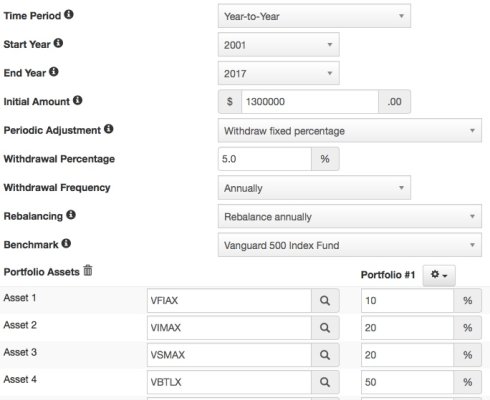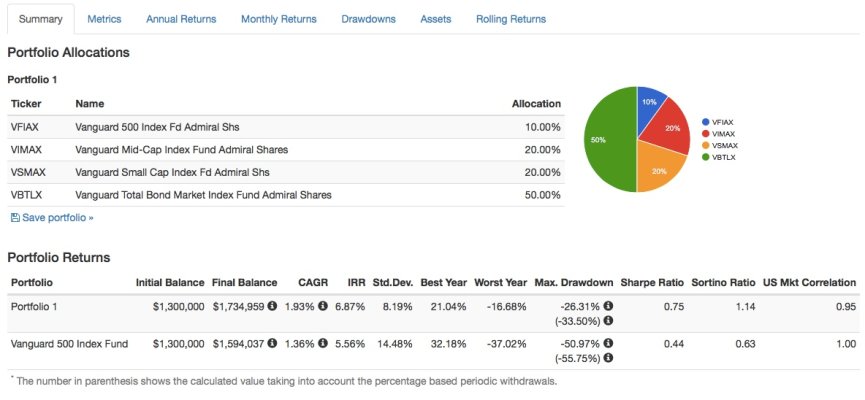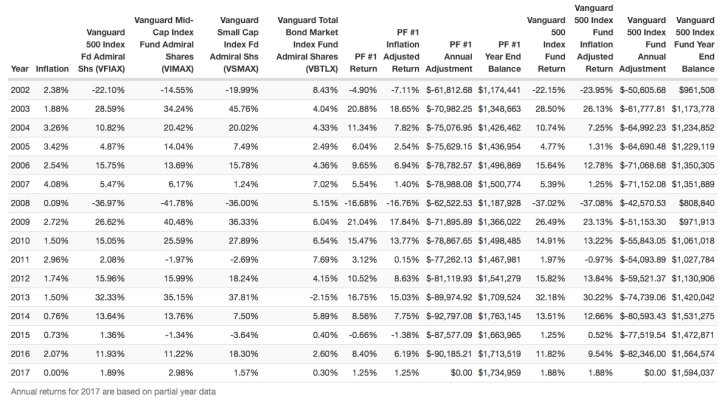Hello, I'm preparing to transfer my 401 upon retirement this year,  to an IRA. One of the portfolio options I'm considering is shown below. I wanted to get some feedback and thoughts from the community.
to an IRA. One of the portfolio options I'm considering is shown below. I wanted to get some feedback and thoughts from the community.
Assumptions:
Portfolio initial balance ~1.3mm
Objective is biased towards captial preservation while allowing an opportunity for growth.
AA is 50/50, rebalanced annually
Investment window is 20-30 years
Annual withdrawal rate would be in the 3-5% range over that period.
Will have a fixed pension that will provide ~30% of the annual budget
SSN will provide ~25% of annual budget
VFIAX: Vanguard 500 Index 10%
VIMAX:Vanguard Mid-Cap Index 20%
VSMAX:Vanguard Sm-Cap Index 20%
VBTLX:Vanguard Total Bond Mkt. Index 50%
Thanks in advance...
 to an IRA. One of the portfolio options I'm considering is shown below. I wanted to get some feedback and thoughts from the community.
to an IRA. One of the portfolio options I'm considering is shown below. I wanted to get some feedback and thoughts from the community. Assumptions:
Portfolio initial balance ~1.3mm
Objective is biased towards captial preservation while allowing an opportunity for growth.
AA is 50/50, rebalanced annually
Investment window is 20-30 years
Annual withdrawal rate would be in the 3-5% range over that period.
Will have a fixed pension that will provide ~30% of the annual budget
SSN will provide ~25% of annual budget
VFIAX: Vanguard 500 Index 10%
VIMAX:Vanguard Mid-Cap Index 20%
VSMAX:Vanguard Sm-Cap Index 20%
VBTLX:Vanguard Total Bond Mkt. Index 50%
Thanks in advance...



